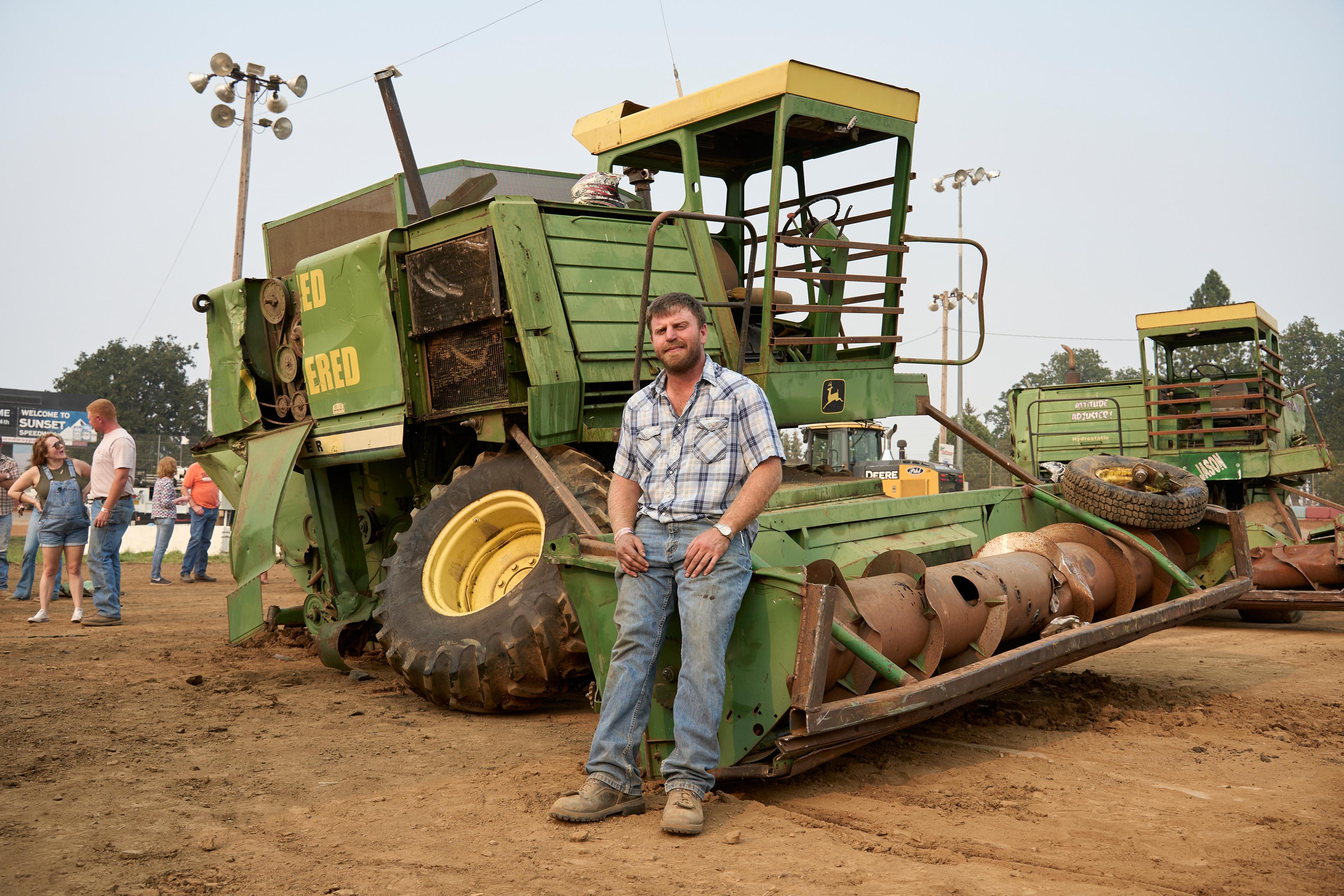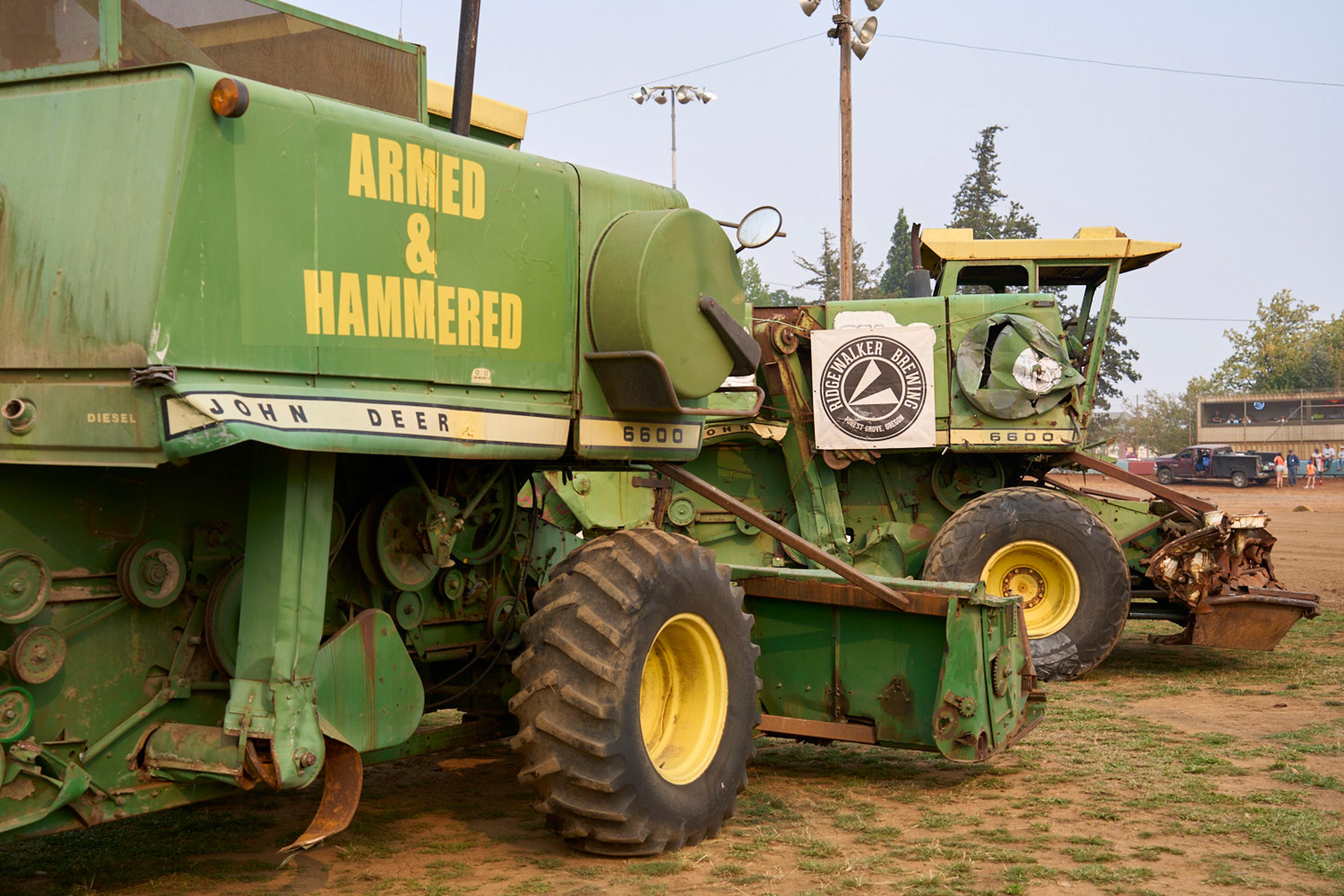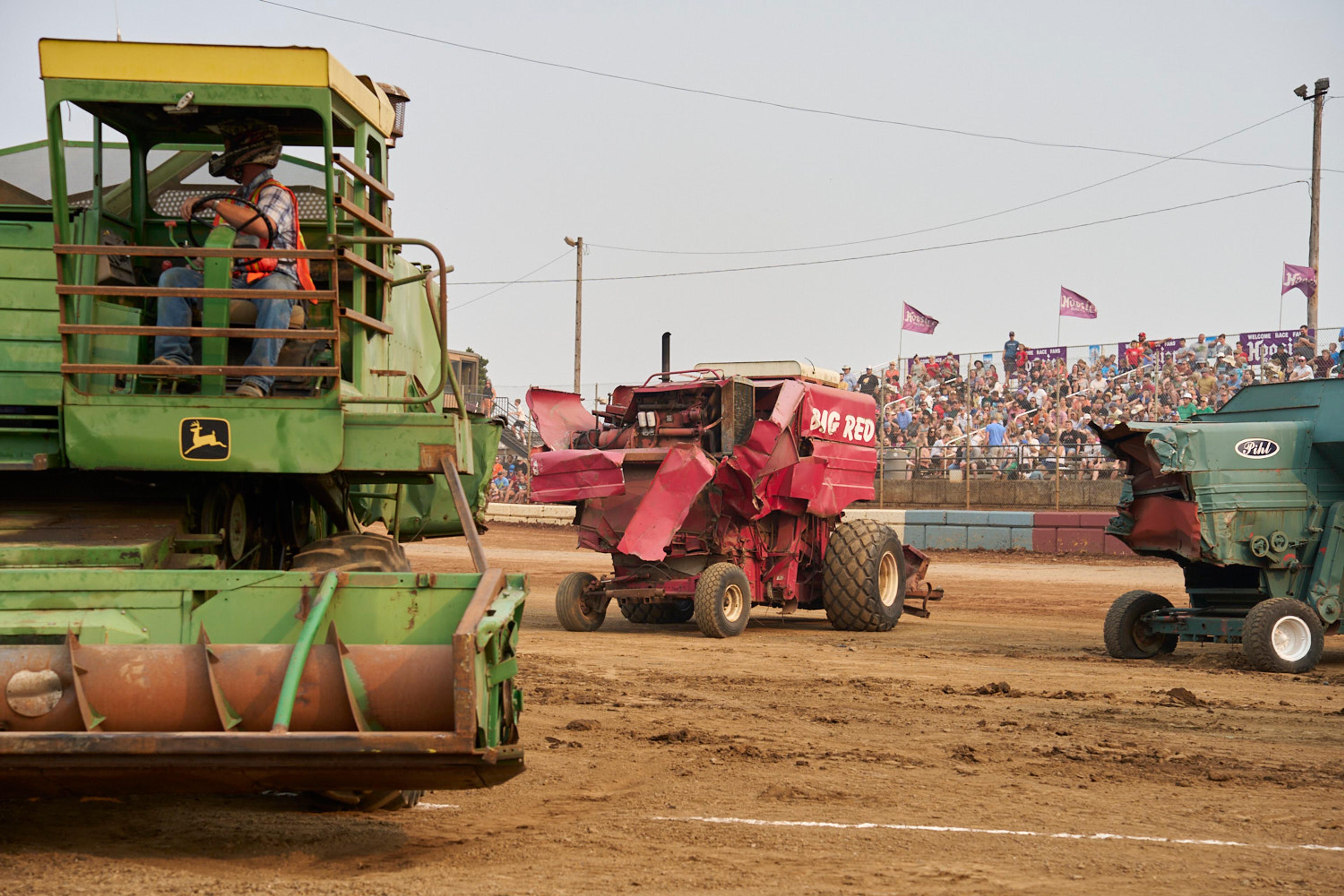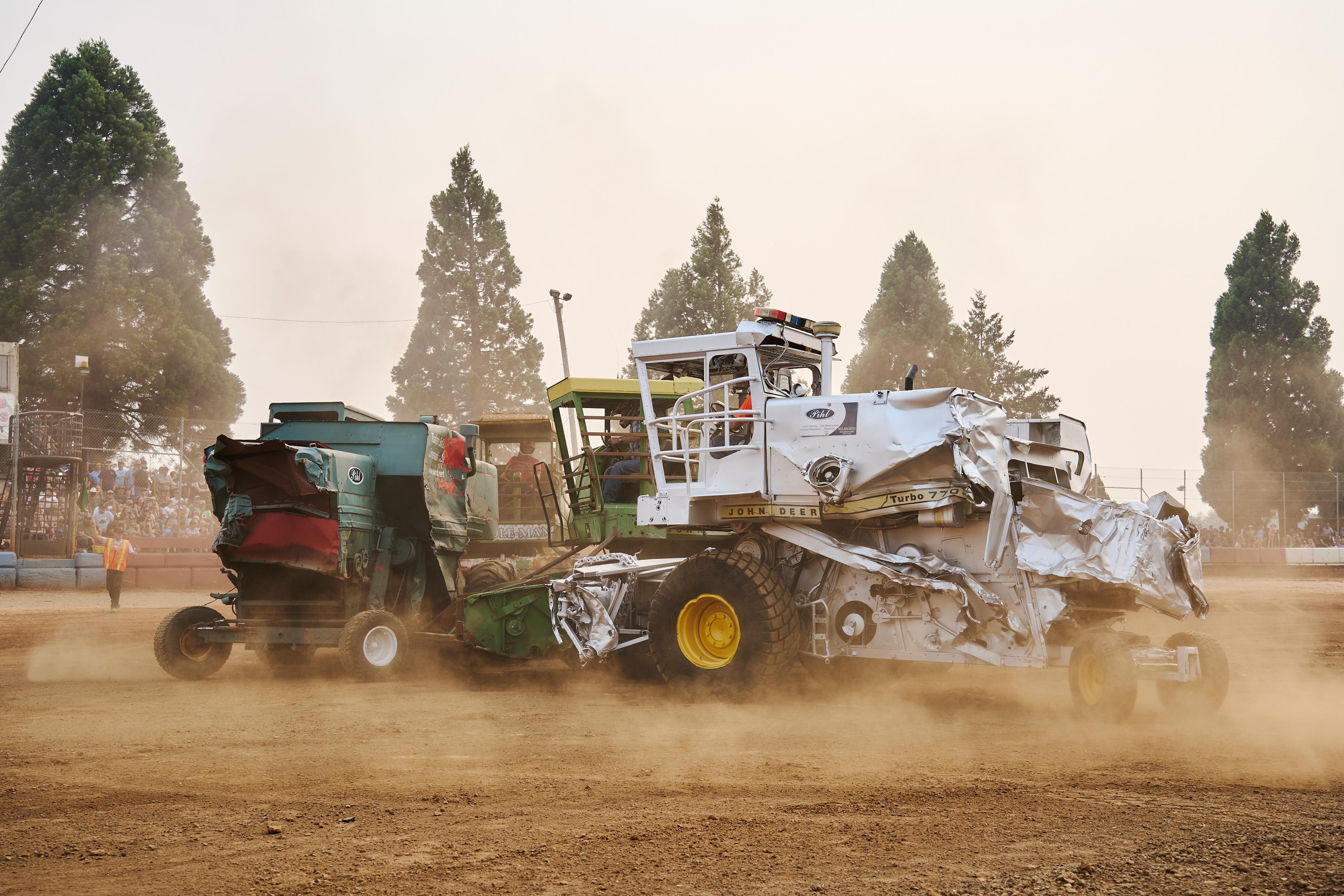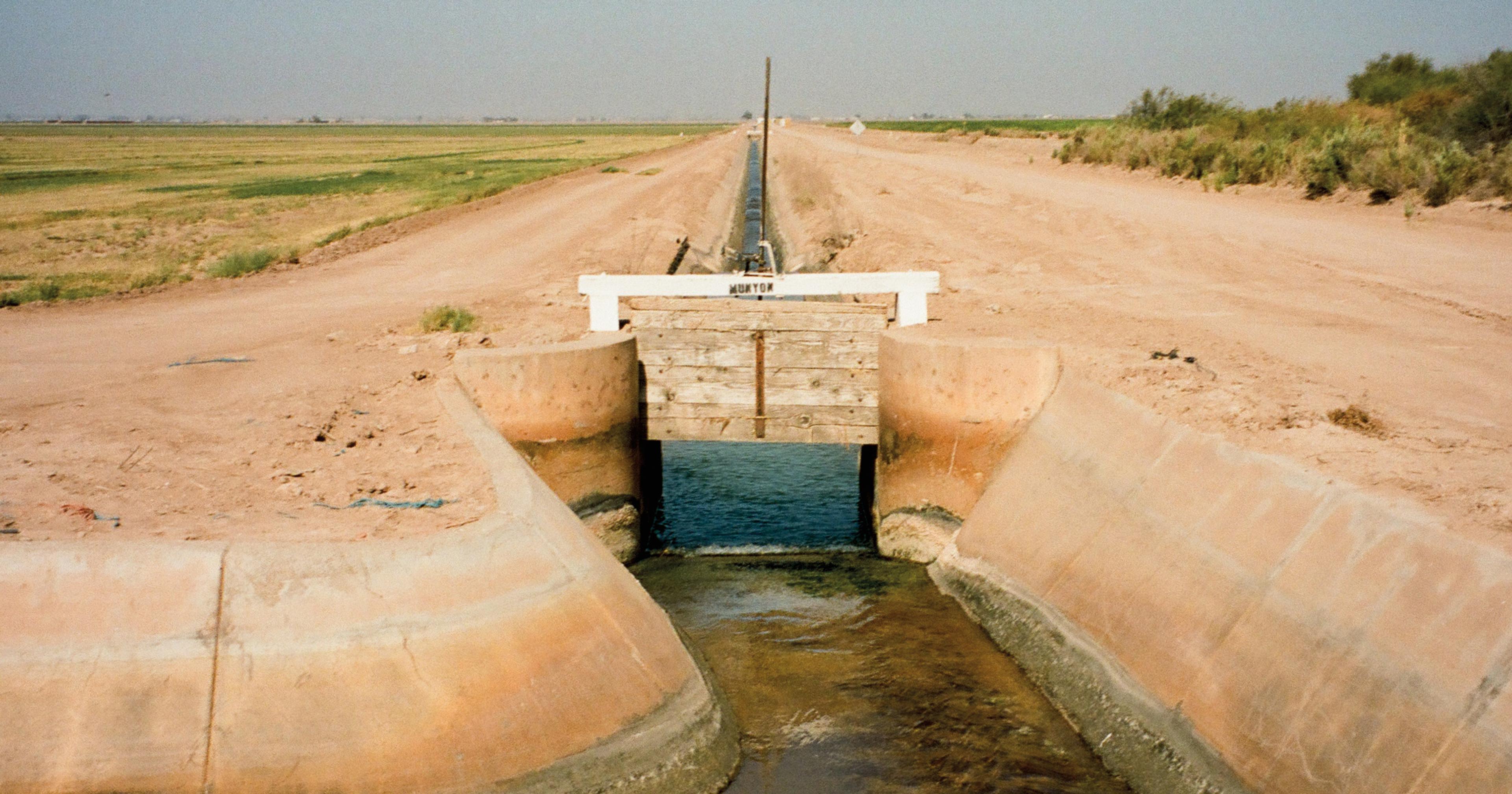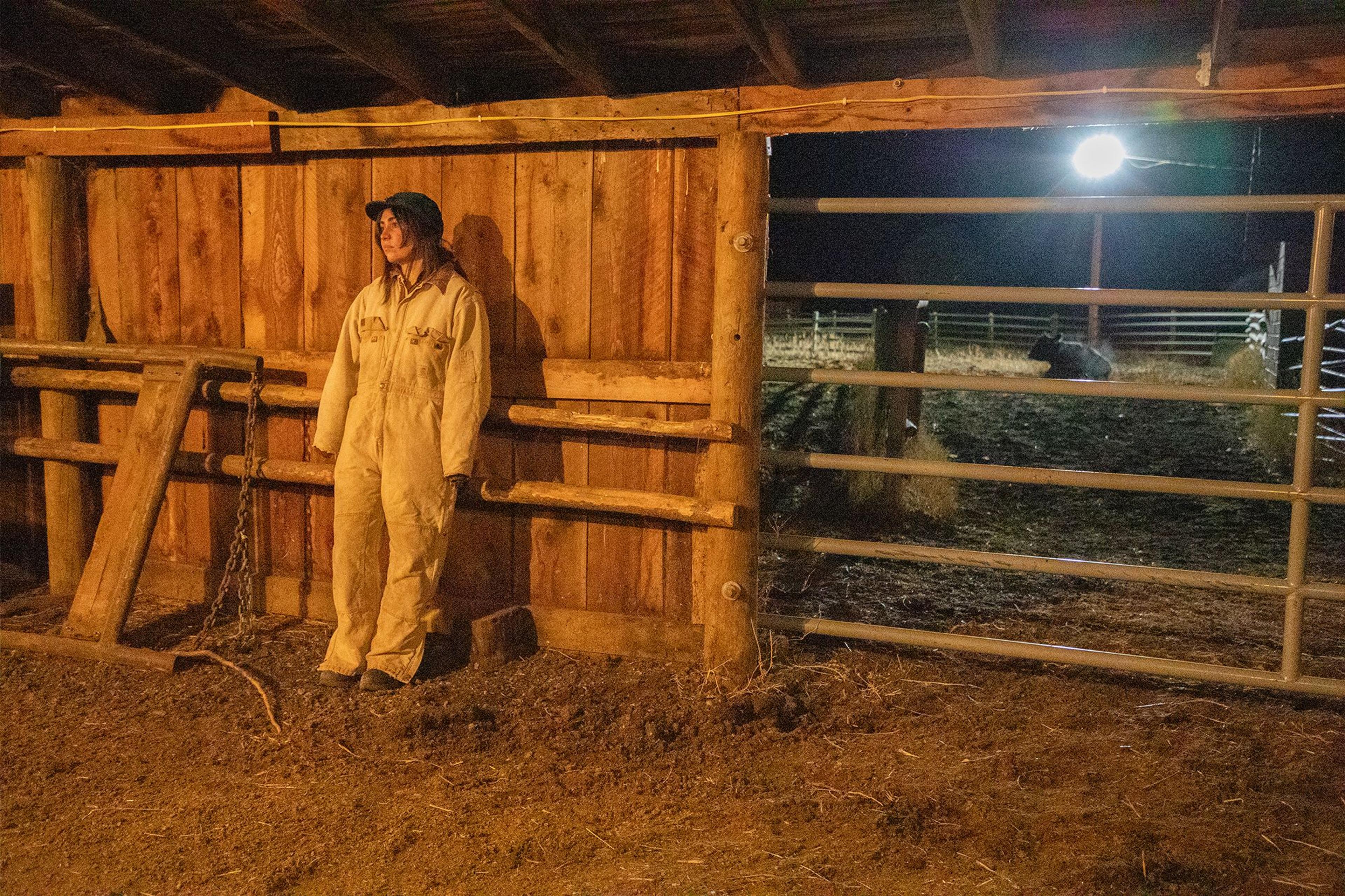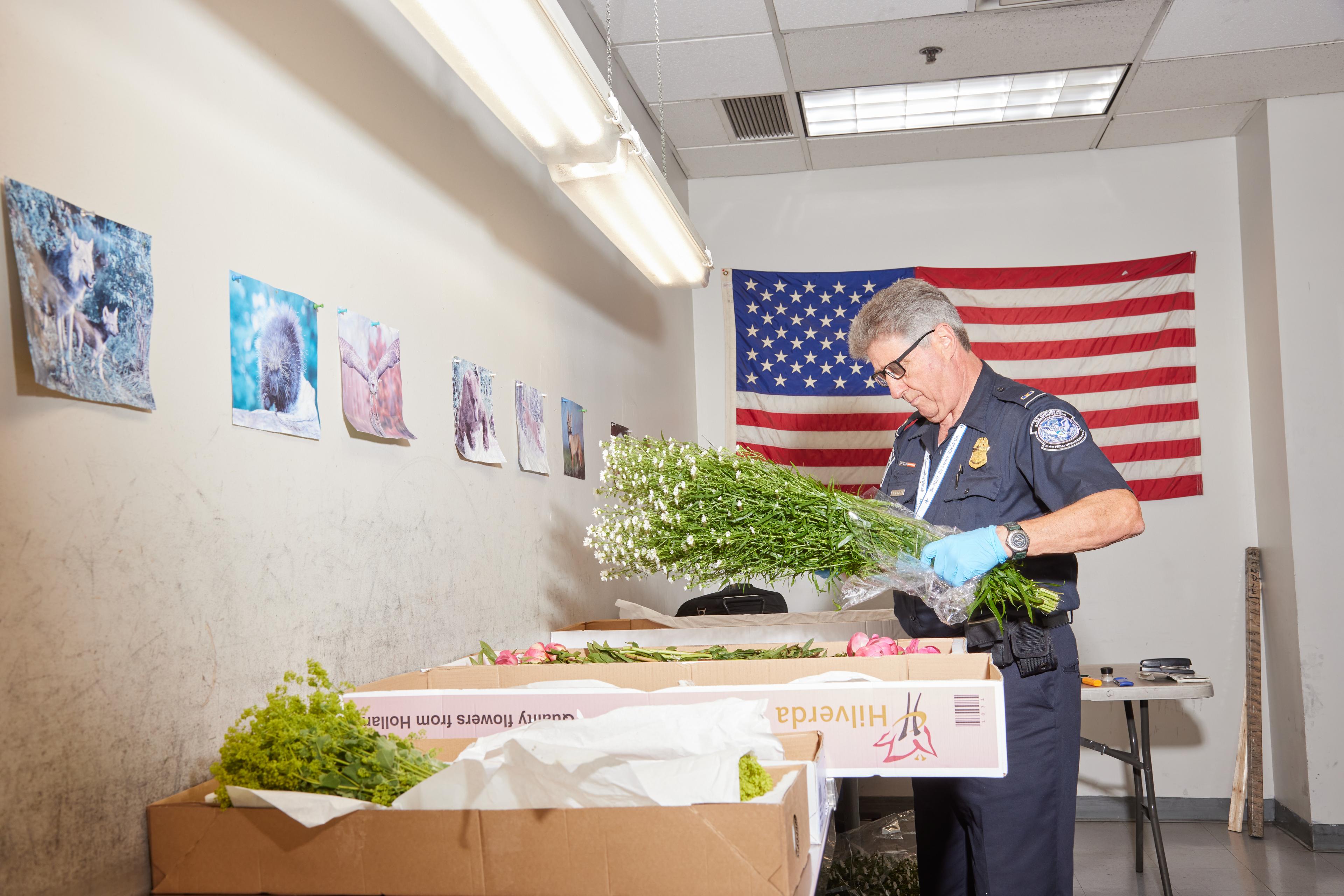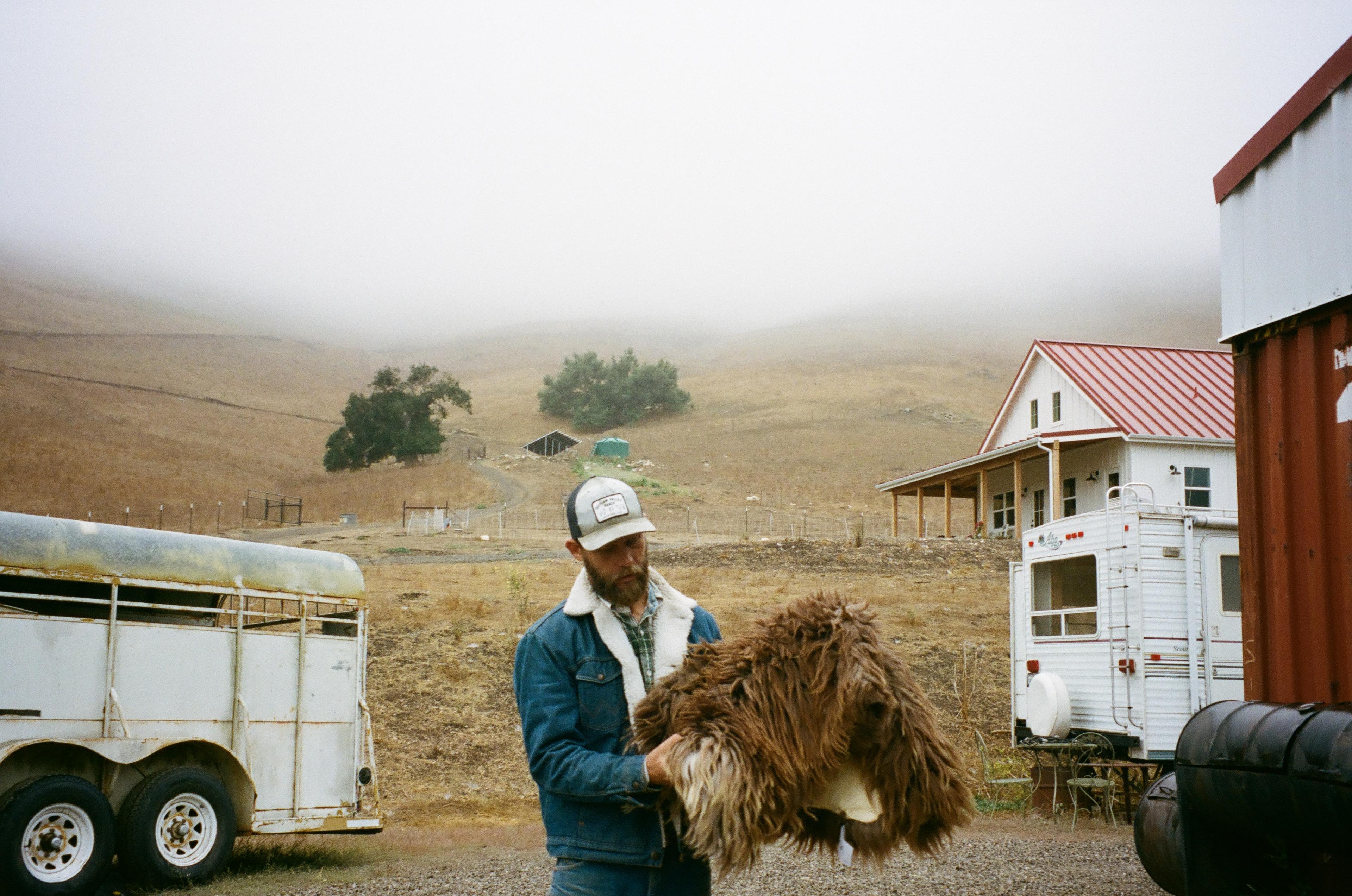The signature event in tiny Banks, Oregon, is a demolition derby with a twist — instead of cars, drivers go head to head with massive farm equipment.
Every year during the third weekend in August, as farming communities and small towns put on their yearly festivals and fairs, Banks, Oregon (population 1,829), hosts a special summer event: the combine demolition derby. It’s a traditional demo derby with farming flair, pitting harvester against harvester in a lumbering clash of the titans.
As part of the larger Banks Truck and Tractor Pull BBQ Weekend, combine drivers enter the arena to raise money for the town’s privately owned park. The wider BBQ event has been going strong for 77 years, and as far as anyone can remember — there’s some dispute on the origin — Banks’ combine demolition derby sprung up roughly 25 years ago. This year, veteran and newbie drivers alike rolled six well-seasoned combines into the pit. Here’s a look at their unorthodox event.
Colin Burton
Profession: Farmer — grass seed and fruit trees
Years driving in the derby: 7
Combine: Big Red
Burton has been involved with the derby since he was a teenager, with a high school job helping to fix combines before they entered the event. “When I turned 18, [my bosses] helped me build Big Red and got me started,” he said. “It takes a lot of time [to build combines] either during work hours or after work hours. People take a lot of ownership in them.” This year, Burton made it past the first round and was able to restart his combine with little effort to drive it home after the carnage. “Most of the time, I’m first-place loser,” he said. “Growing up watching the derby as a kid it was always something to look forward to. And it’s the one time to go out and be a redneck.”
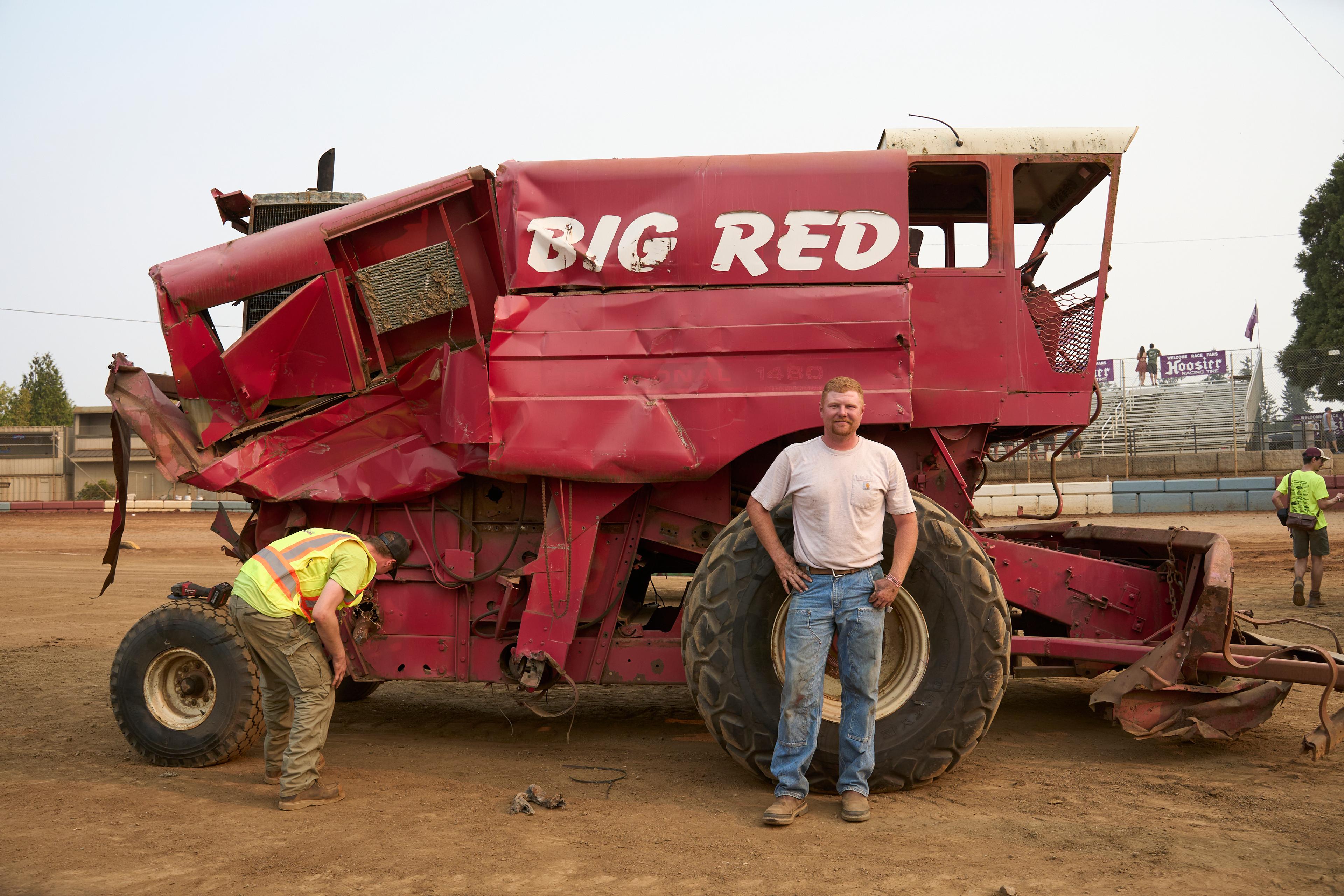
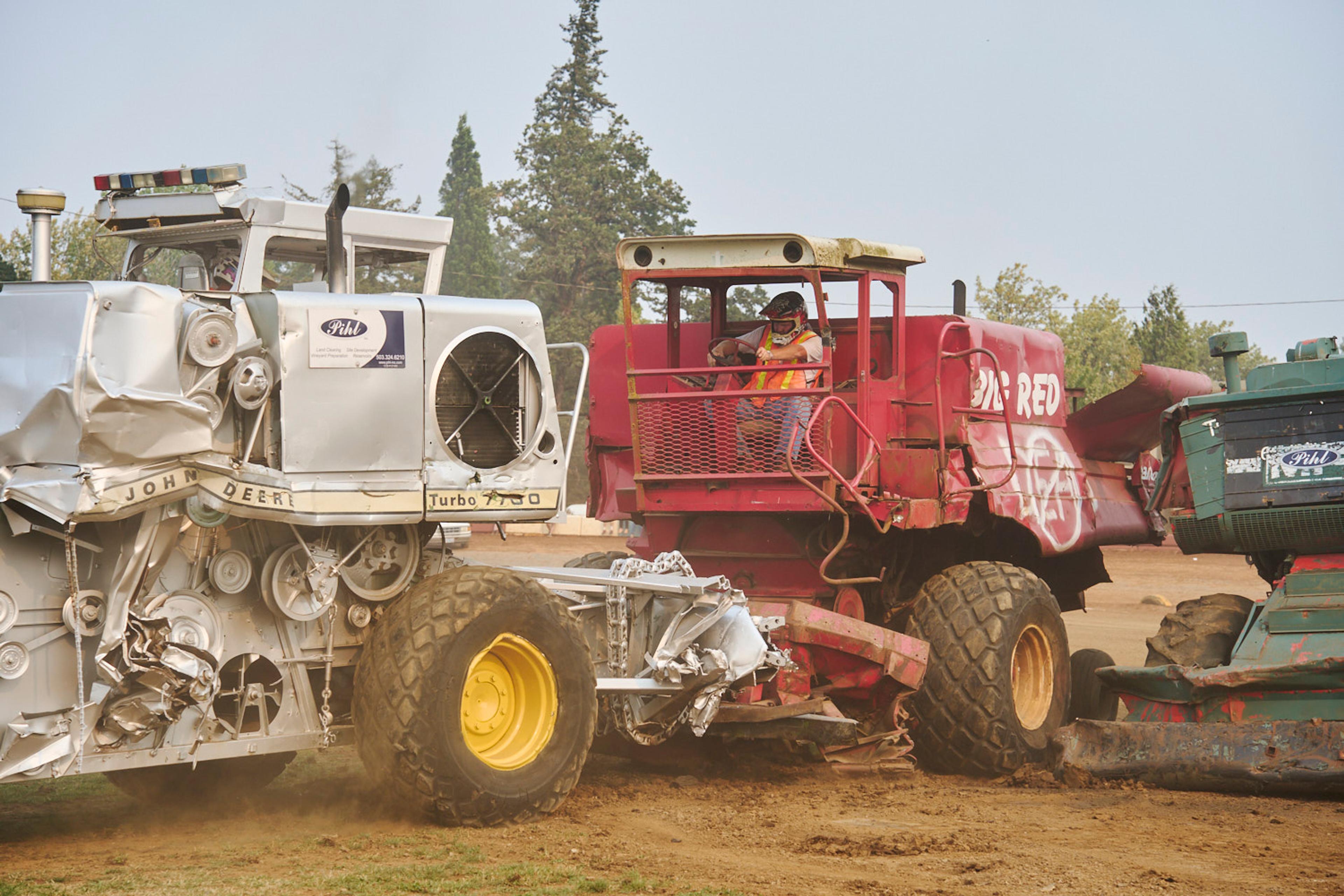
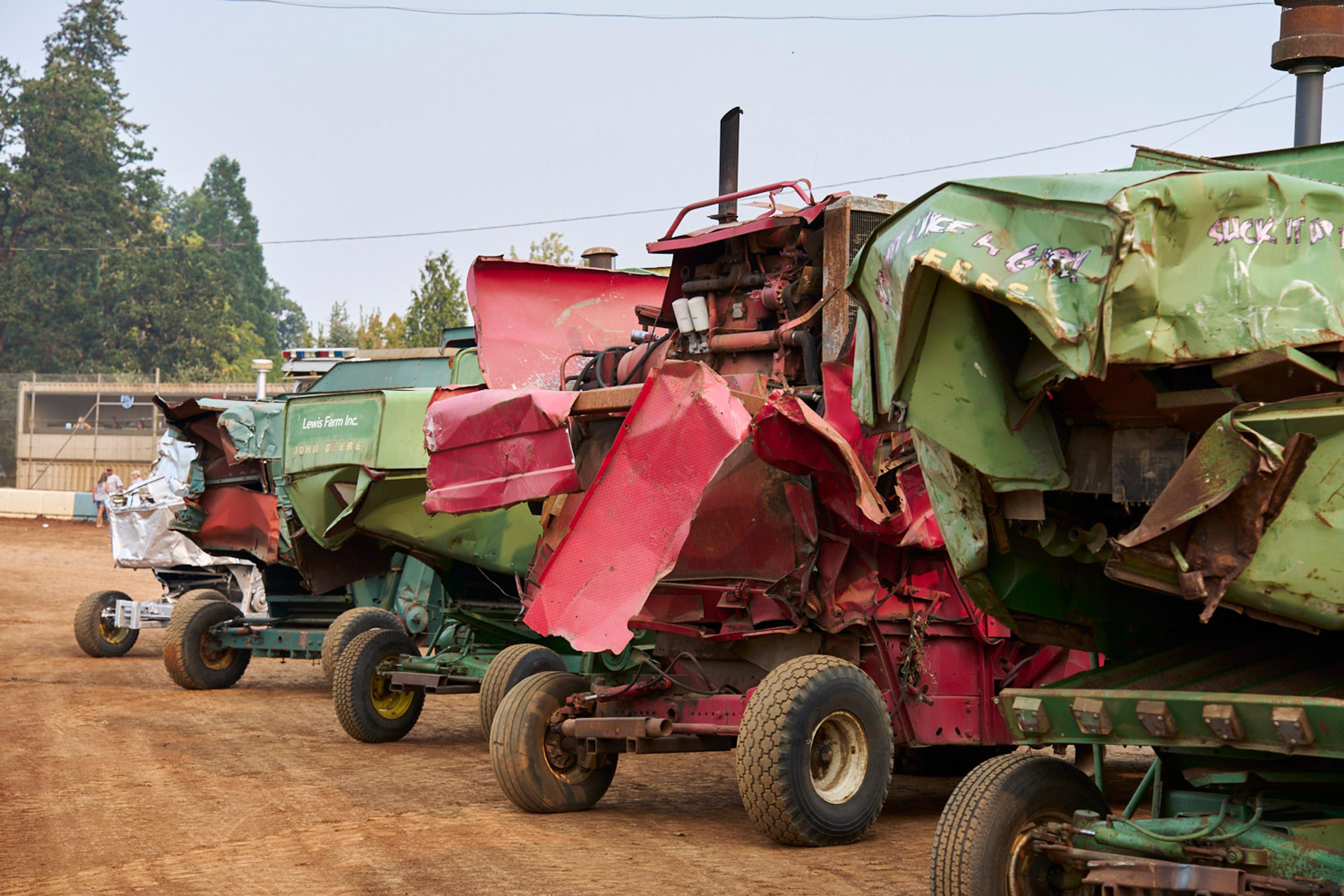
Mike Mosier
Profession: Electrician
Years driving in the derby: 1
Combine: Attitude Adjuster
After a buddy dropped out of driving in the derby, Mosier took the steering wheel for the first time. “I don’t think I’ve ever actually attended the derby before,” he said. “It was just luck that I got to drive this year.” Figuring that because he’s driven tractors before, a combine wouldn’t be too hard. “I got a three-minute tutorial right beforehand but figured it out,” he said. “I was doing pretty good until I lost all steering at one point — so that was worrying.” Luckily, he was able to use the steering brakes and whip himself around before doing damage to anything that wasn’t a combine. “I’d drive again in a heartbeat,” he said.
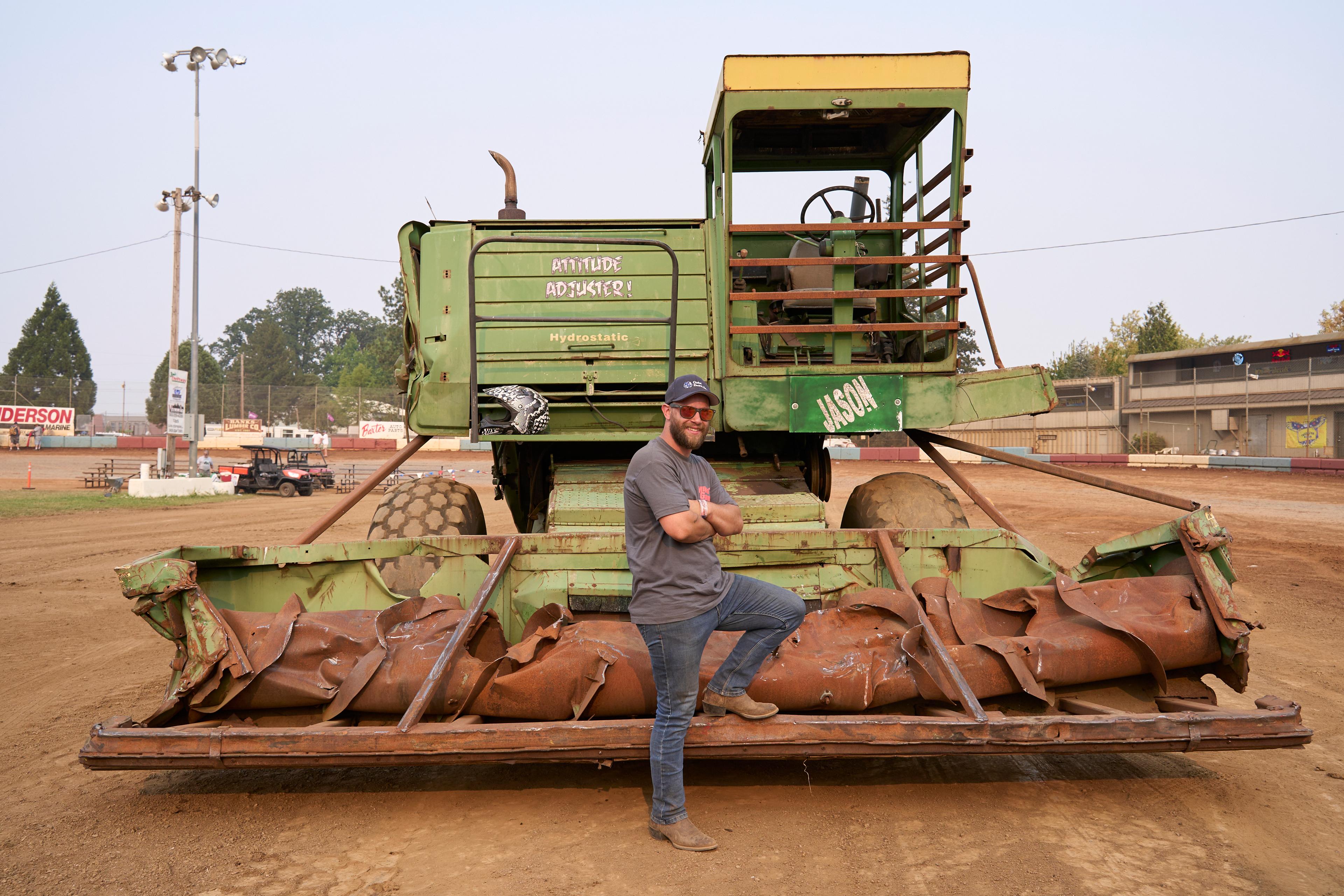
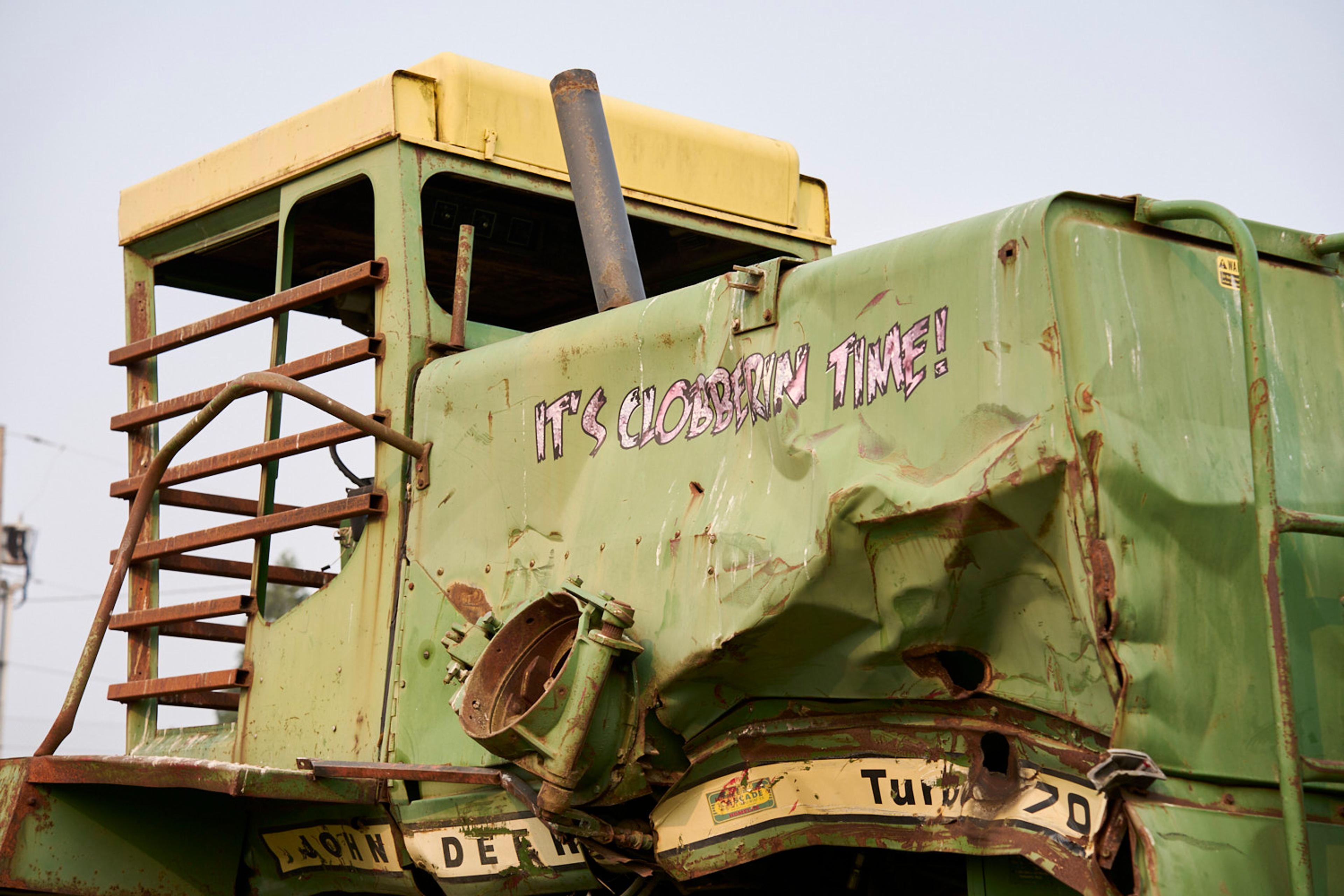
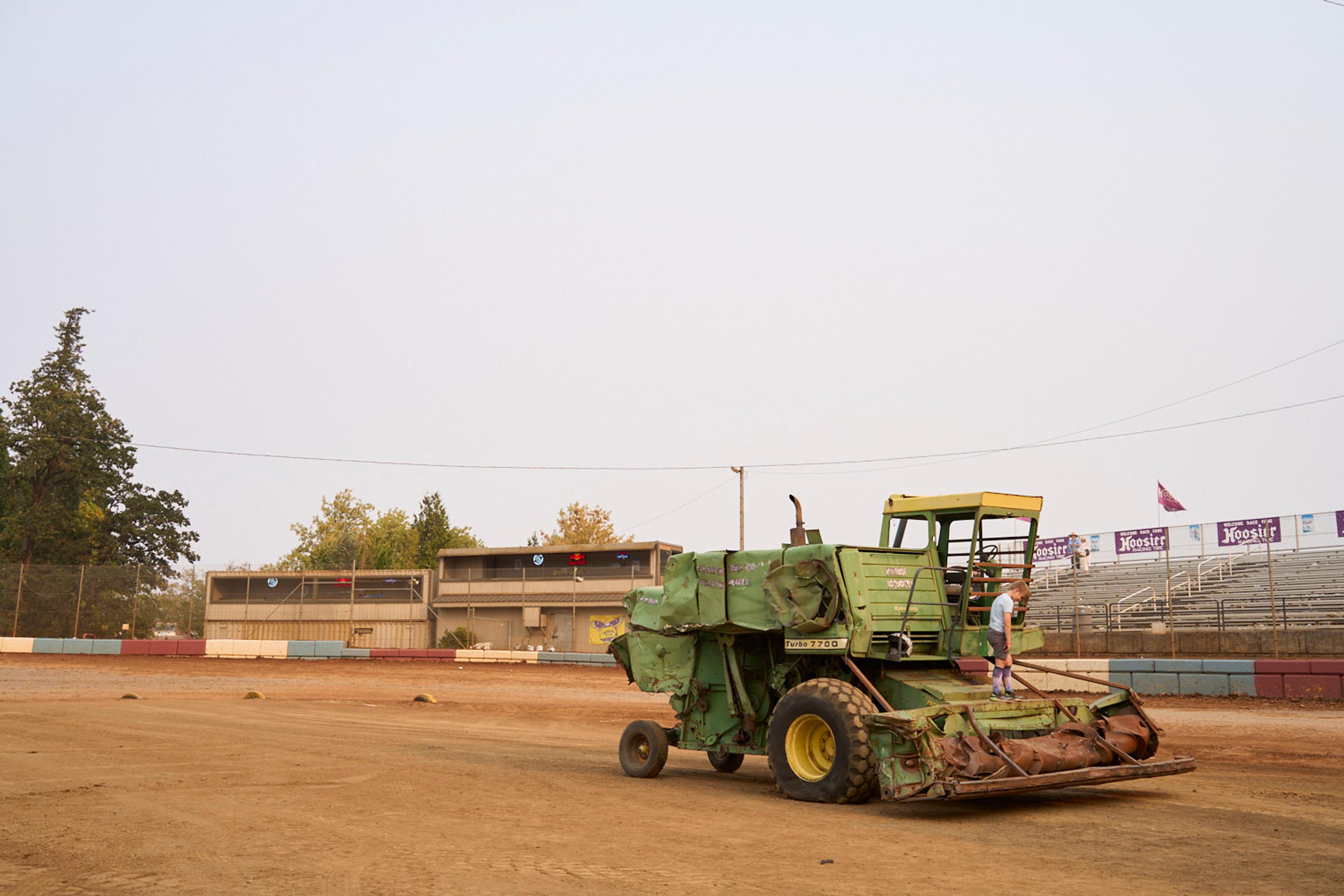
Jared Rigert
Profession: Mechanic
Years driving in the derby: 18
Combine: Silver Bullet
Rigert became interested in driving a combine in the derby because “as a young country boy, you’re always interested in destroying stuff you don’t have to fix after.” As a mechanic, he’s pulled trucks and raced, so combines seemed like a natural transition. “My first year, I tipped over,” he said. “I was fine. I don’t think anyone has ever gotten shut-the-show-down hurt. I can guarantee everyone has sore muscles and scratches after.” The derby makes Banks stand out from other small towns, he said. “You have to have something different to bring people in. Everyone has barbecues, but not everyone has combines crashing.”
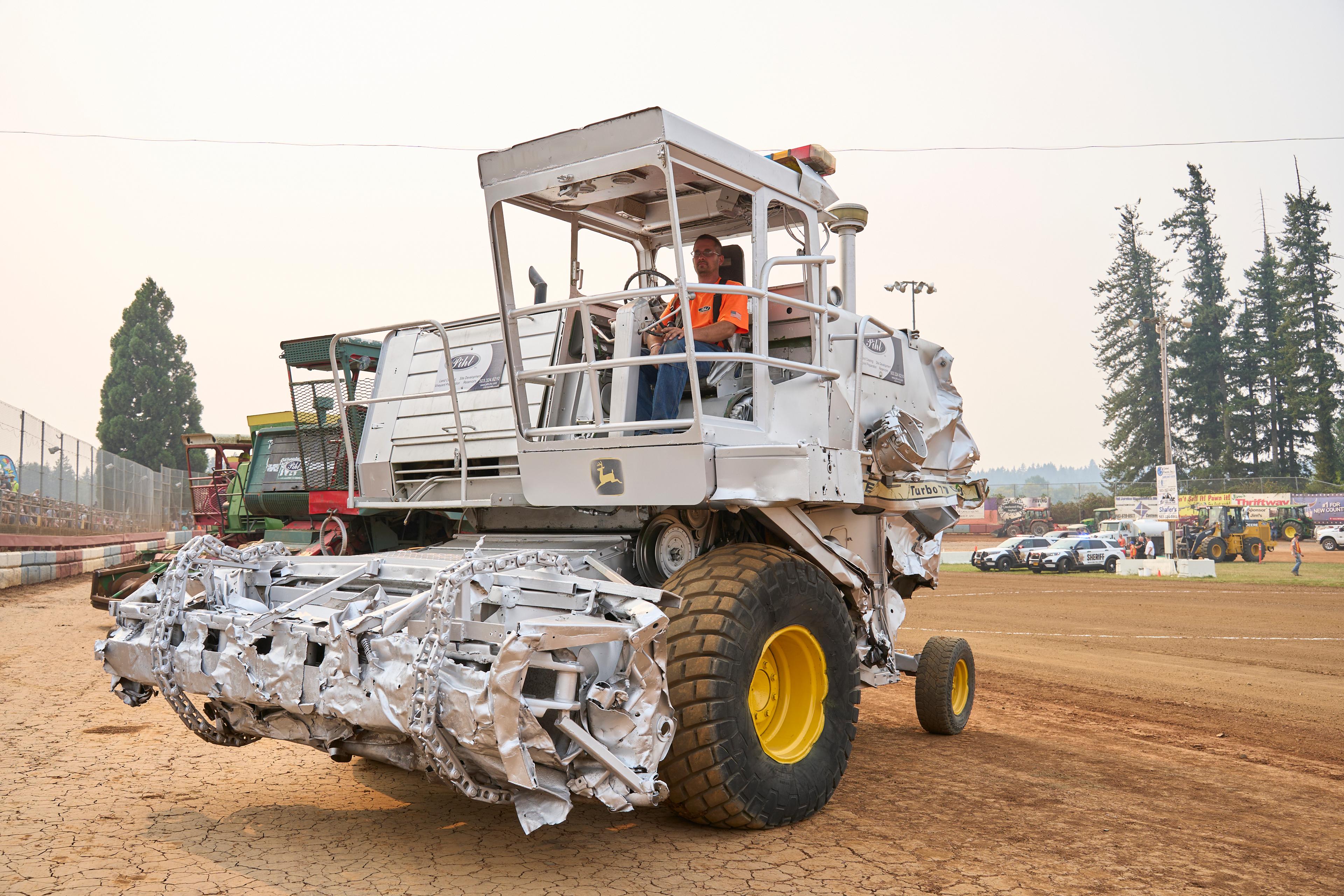
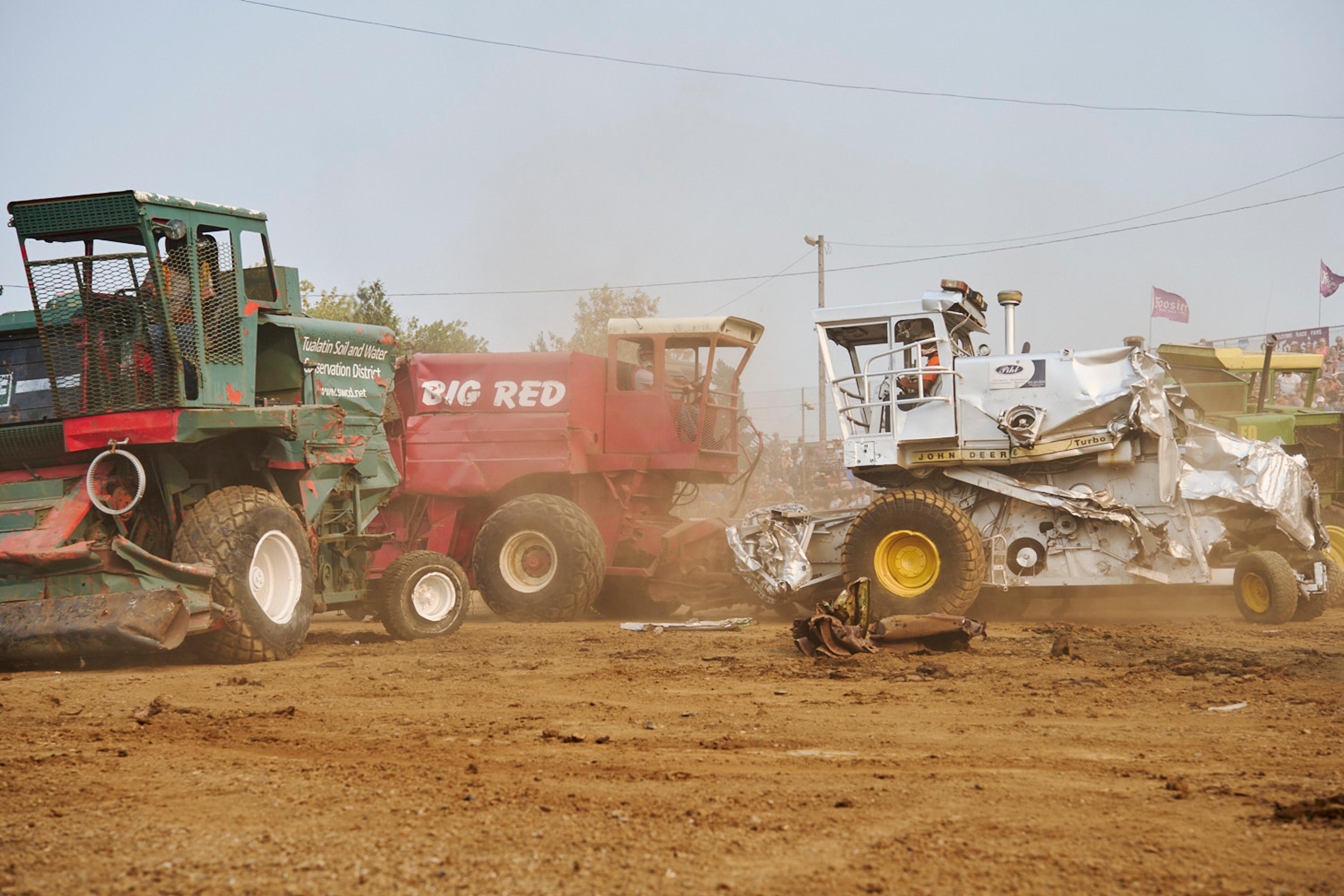
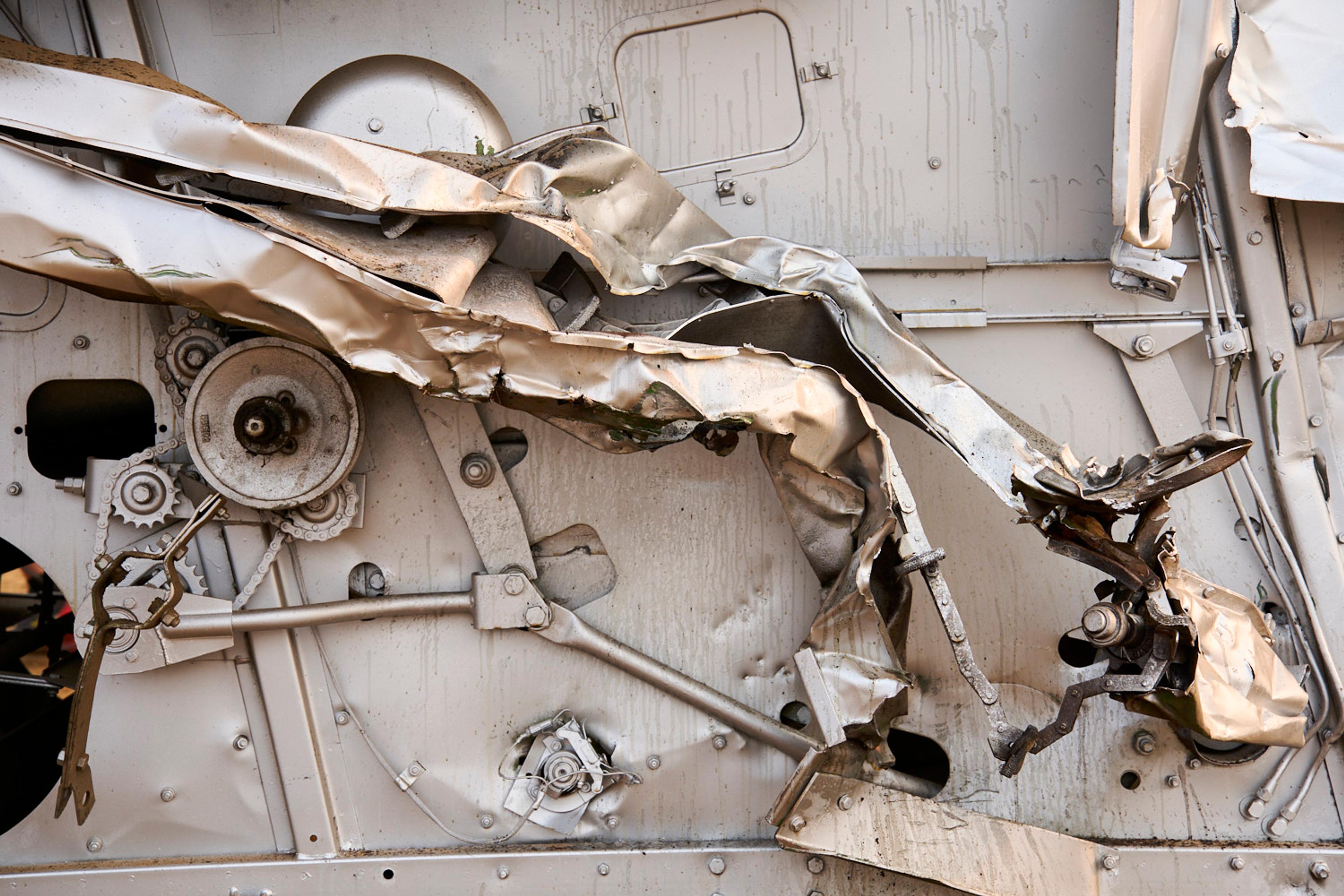
Cole Duyck
Profession: Farmer — grass seed, small grains, wheat
Years driving in the derby: 18
Combine: Duyck Dynasty
The way drivers and owners name their combines incorporates parts of their personalities, Duyck said. “It’s kind of like a WWE name.” He took over driving in the derby after his uncle gave up the wheel, and the rest was history. “I tell myself every year that I won’t do it again, but I always get the itch,” he said. He was able to drive his combine home this year, though some welding needs to be done to make it roadworthy again. “Still have some work to do for next year, but we got it back on three wheels,” he said. The fourth wheel was not fixable until it got to a shop.
The tractor pull and other weekend events draw sizable crowds, he said, but once it’s combine time, the seats sell out. “The whole event is one big fundraiser that keeps the park going — keeps the grass green. It’s also huge economically for the area,” he said. Once boasting a lineup of over a dozen combines, participants have dwindled to just six or so each year. “It would be great to have another generation that would be interested in it. There’s so much work that goes into it that people get burnt out. It’s also a generational thing. Being in ag, there’s a big age gap. But it’s a lot of fun and a good show for the community.”
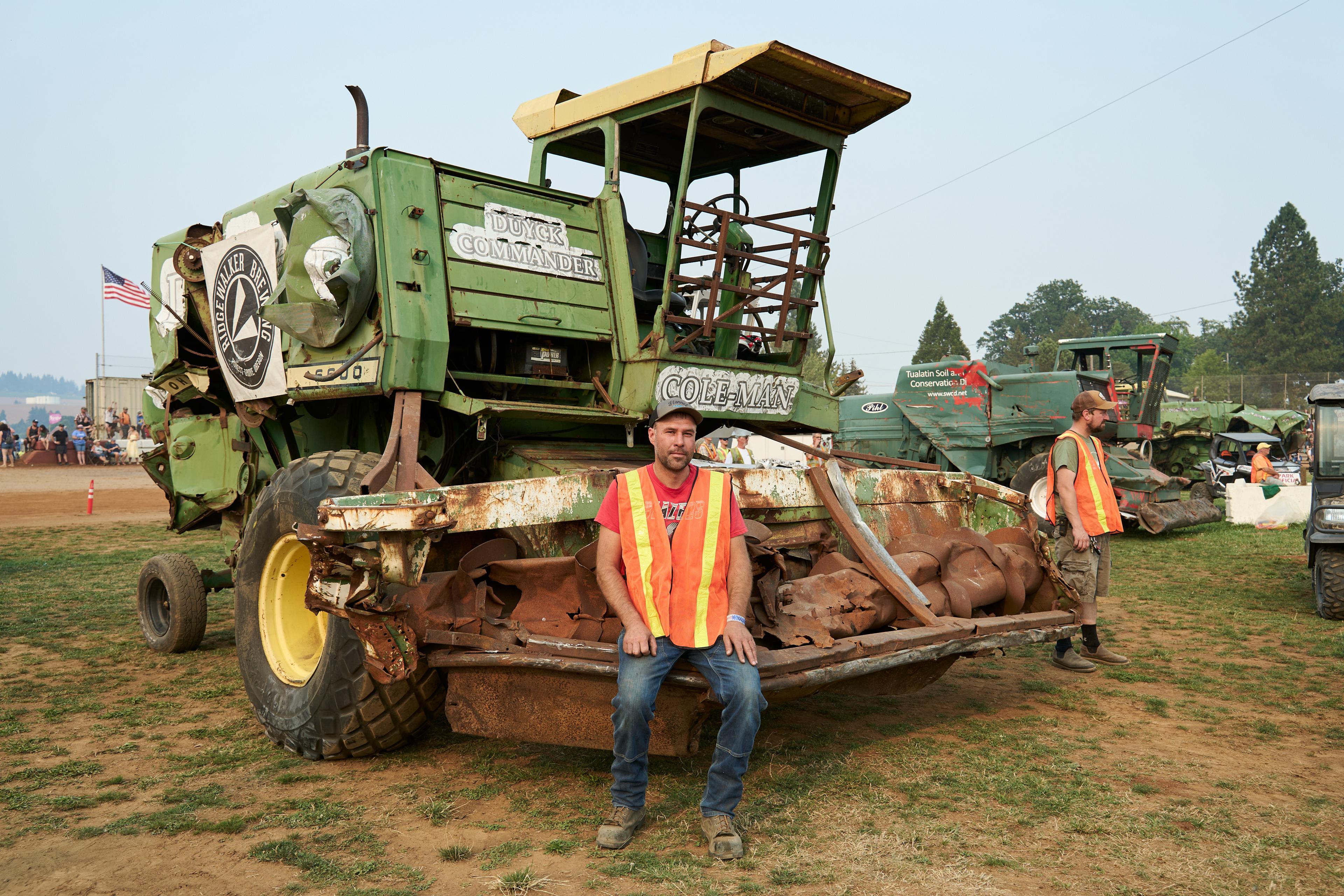
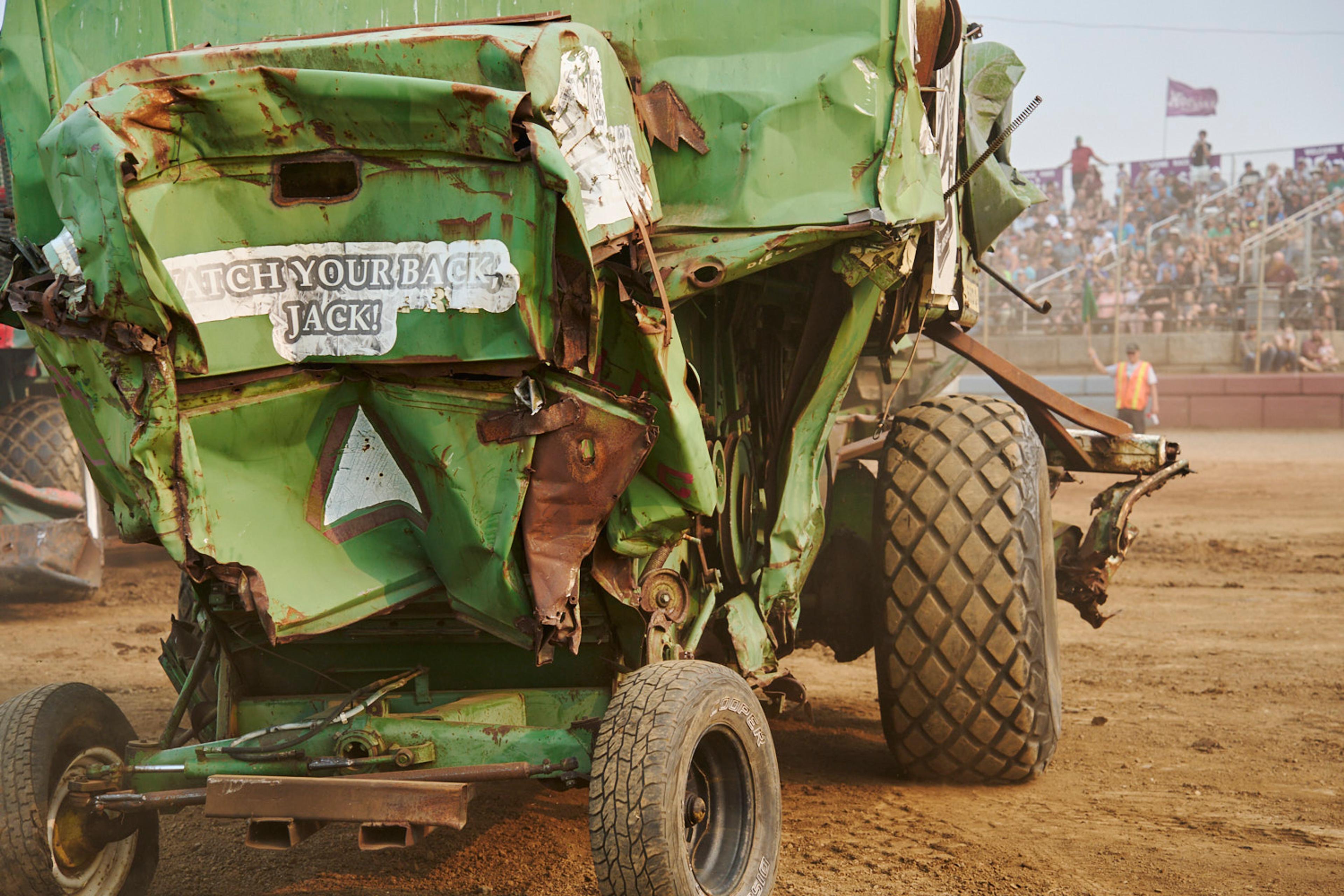
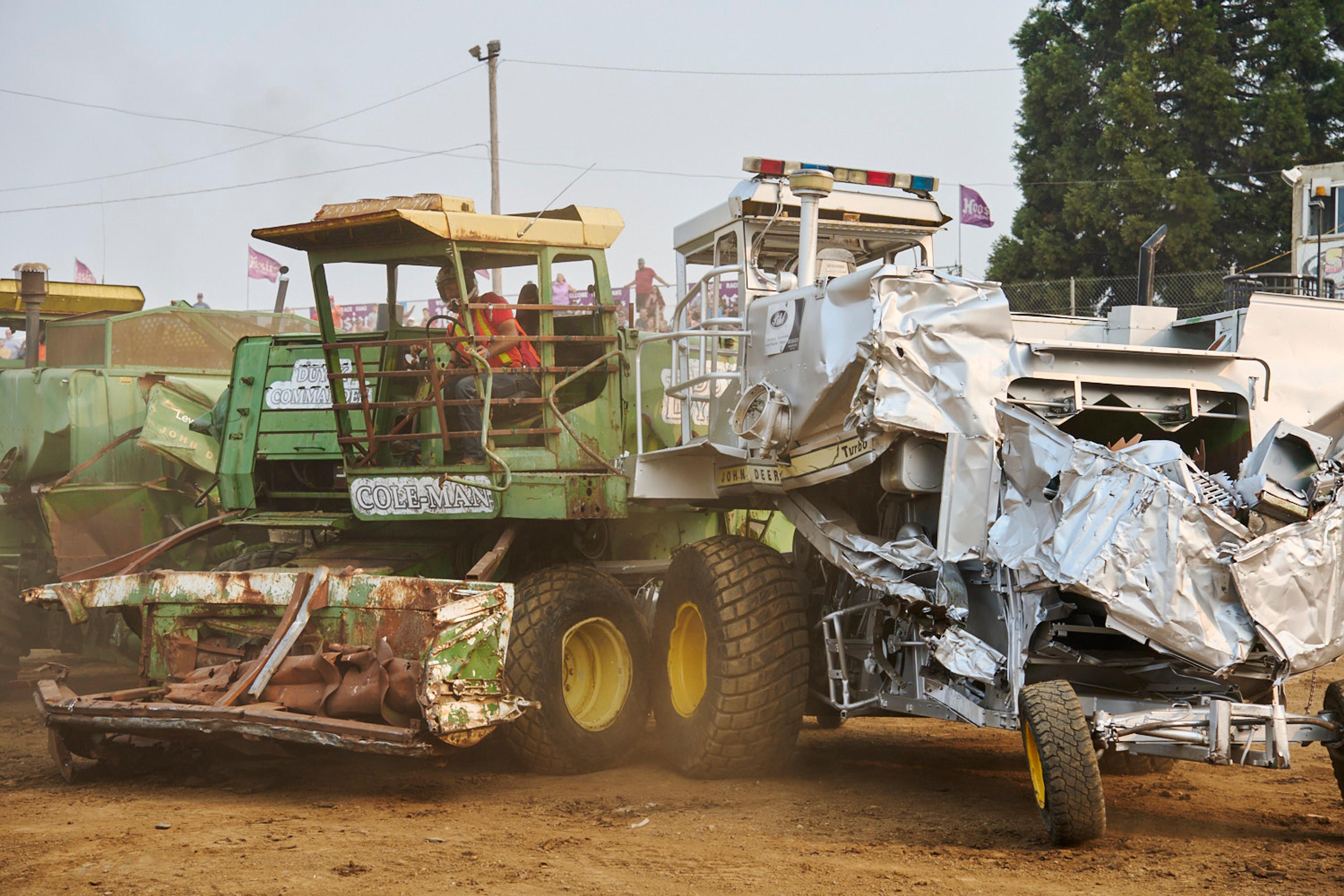
Scott Scholbrock
Profession: Excavator
Years driving in the derby: 1
Combine: “No name, it’s just old.”
After watching a few clips of the derby on YouTube, Sholbrock thought he’d give it a shot. “I’ve been a motosports junkie my whole life. I’ve never seen a combine derby before,” he said. His employer has two combines in the derby each year, which gave Scholbrock the opportunity to try something new. “I’ve driven cars, trucks, school buses — never a combine. I did two practice runs in my yard beforehand.”
Compared to more traditional derbies he’s participated in, driving a combine differs because they’re so much higher. “It makes the hits you take feel even harder,” he said. After having brief second thoughts while waiting for the derby to start, Scholbrock can’t wait to participate again next year. “I want to get better, and now I have a couple of ideas on how to protect myself and make better hits,” he said. “And when you see the eyes of the kids, it’s so cool. When you’re little, everything is just larger than life. It’s a really big thing for the town.”
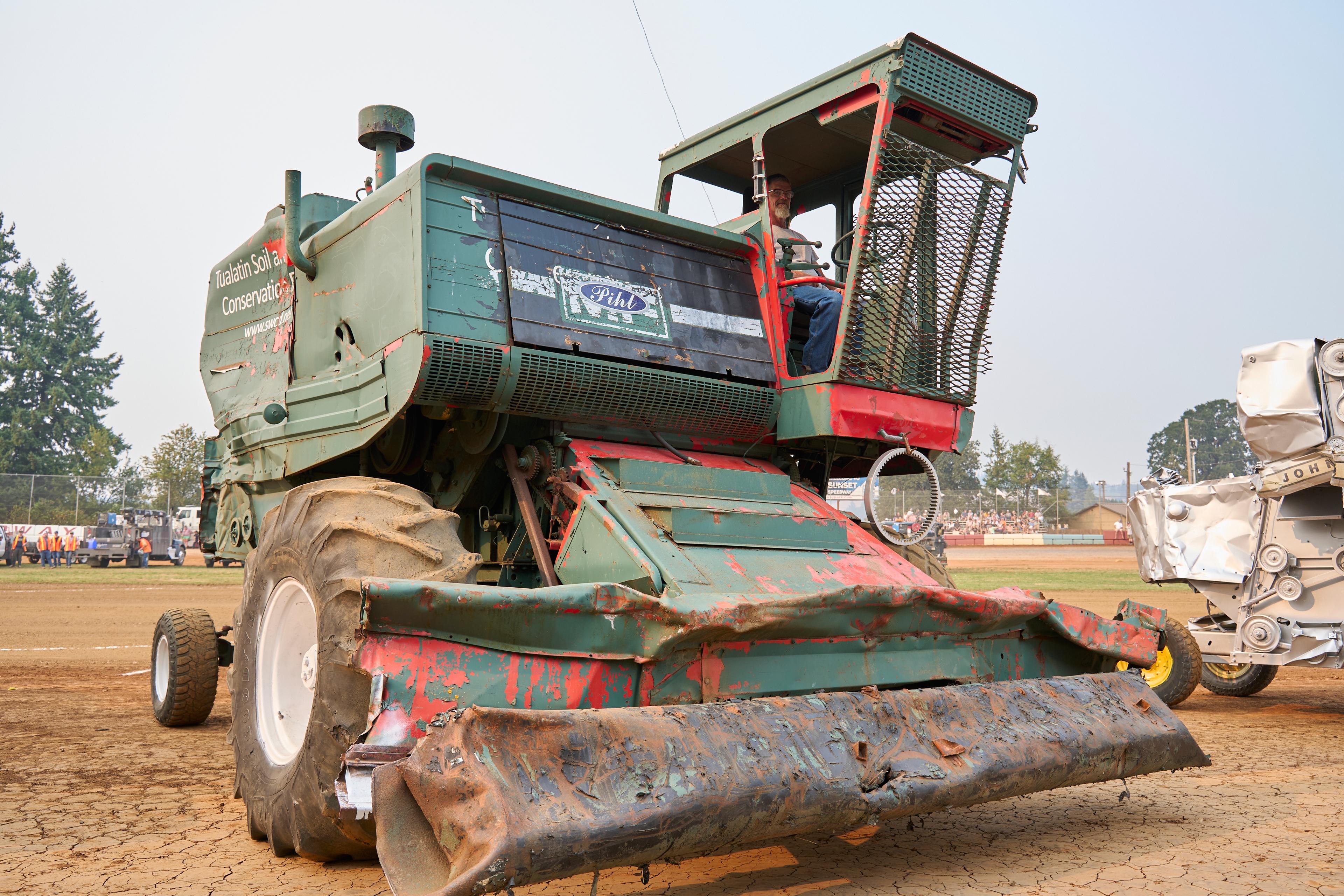
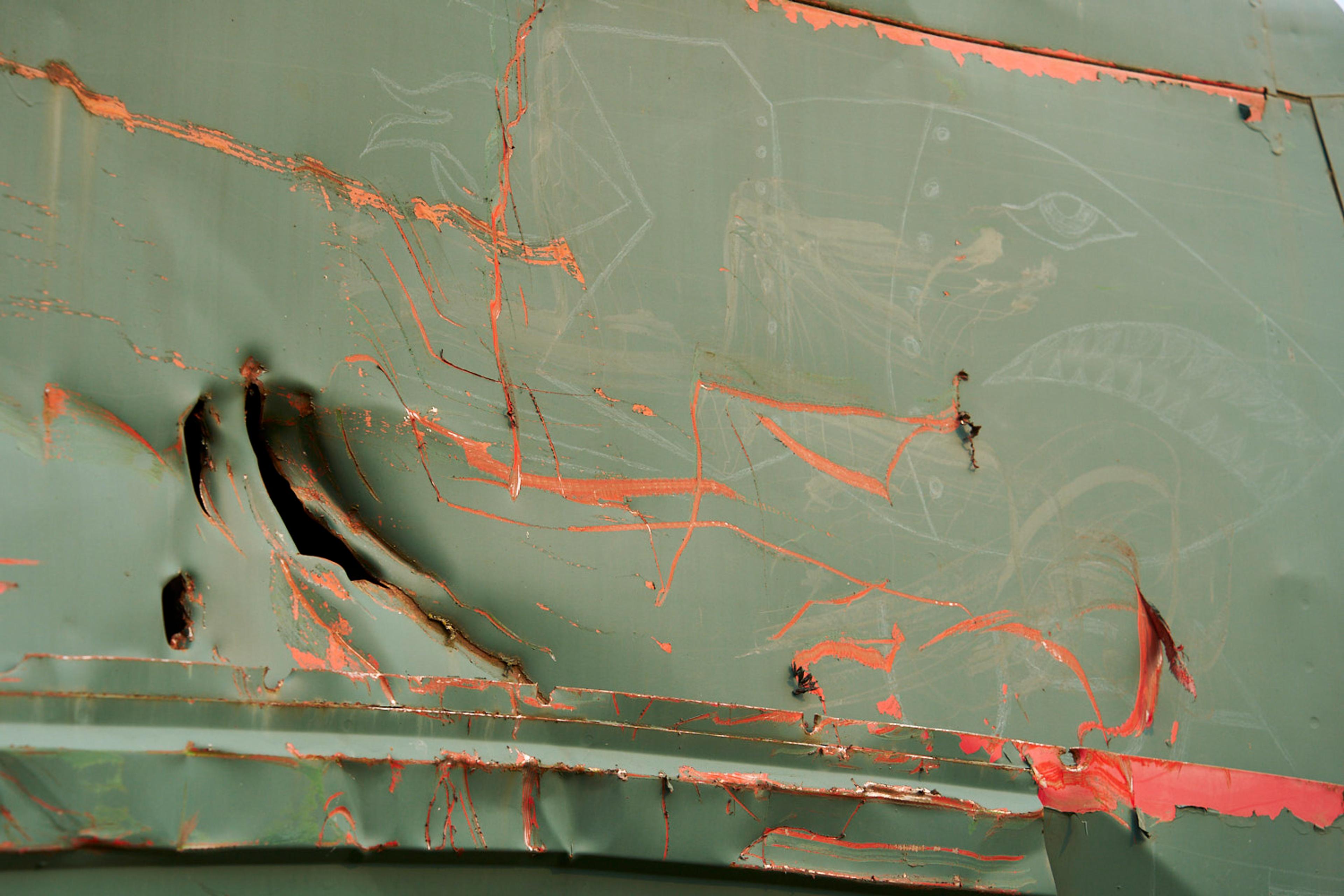
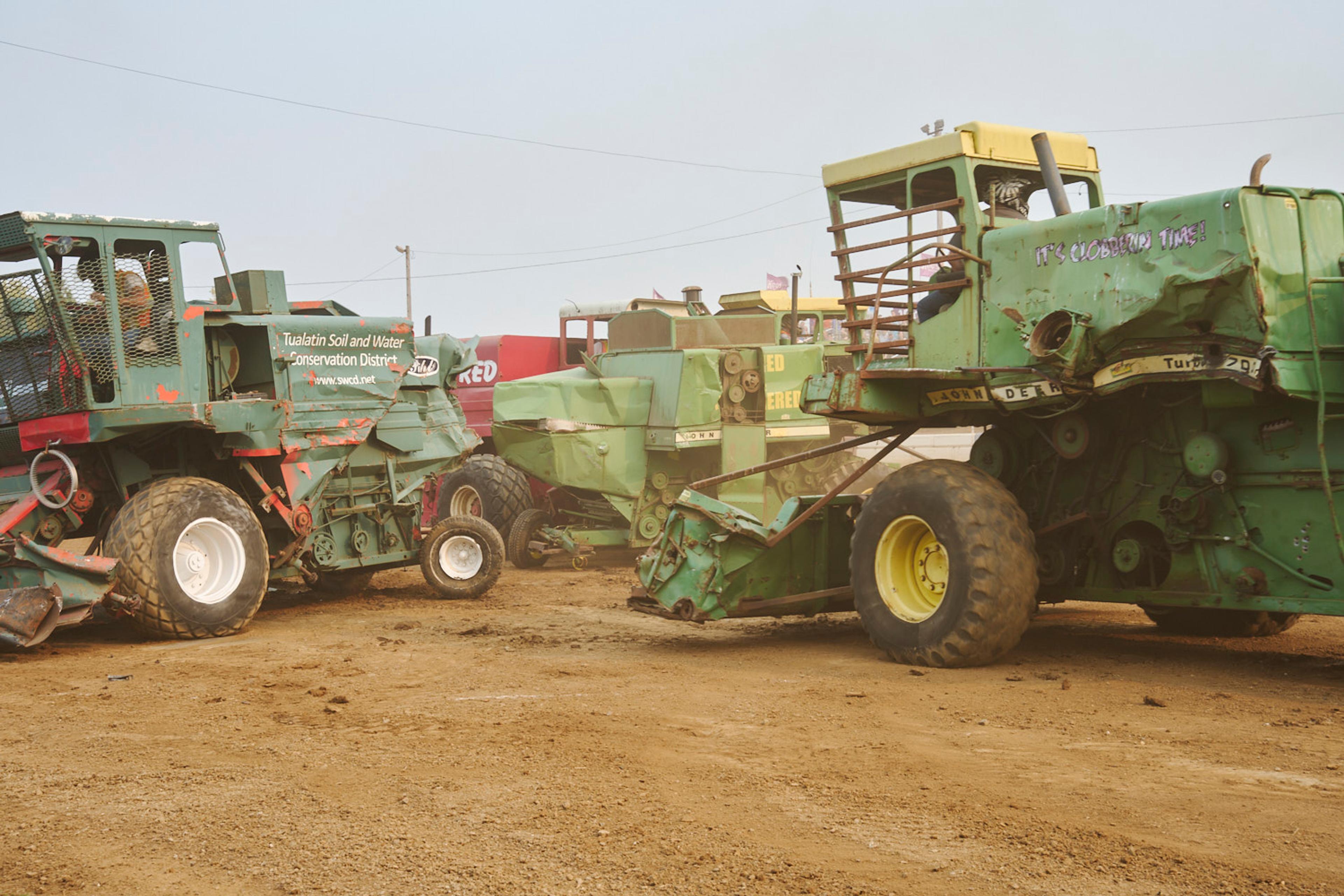
AJ Lewis
Profession: Farmer — fruit, corn, grass seed
Years driving in the derby: 5
Combine: Armed & Hammered
Combines can get pretty mangled, and the process of piecing them back together can be Frankenstein-esque. Lewis said he’s able to source spare parts from other combines to get his working each year. “The derby’s been going on long enough that you can just call around and ask for parts,” he said. If you lose an engine or transmission, it’s done. “You don’t want to spend a lot of money on these. You fix them as best you can — do a lot of welding.” If you can salvage enough parts, you’ll be good for next year.
